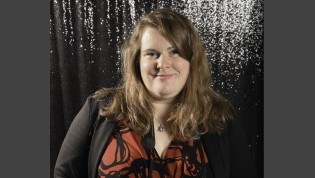As a freelancer, days not worked are days not paid. But that doesn’t you mean don’t get to take holidays, whether in your own backyard or to somewhere more exotic. It just might mean you get creative about how to turn your holiday into future writing opportunities.
I’ve just emerged back onto the freelance scene after a year and a half of a pretty regimented schedule, so I said yes to a lot of travel this summer. I mentioned feeling a little guilty about all this unpaid adventure to David Beers, a former teacher of mine and the founding editor of The Tyee. His response: don’t. Travel, near and far, just take a notebook.
A lot of reporting and writing involves some form of travel anyway — how else are stories found? — and so I’ve looked into how to approach travel writing and generate stories from travel experience.
Is it best to pitch before or after? Should I set up interviews or just see who I meet? To help answer these questions, I asked a range of Canadian and international travel writers what they do and what advice they have for freelancers interested in turning their summer travel into stories.
Going for the story, or seeing what you find
“Every holiday I do, I write about. Even if it’s just for my blog,” says Luke Darracott, a writer and food-lover originally from the UK who is now based in Spain. Darracott freelances for travel magazines like Wanderlust and writes for travel guides.“I’m never without my notebook, my camera, and my phone,” he says.
Being “on” while travelling works for some, but might not be the break you’re after on your holiday. For this reason, Carol Patterson, a travel writer based out of Calgary, likes to pick and choose which holidays she’ll be working on.
“On trips that are vacation time with my husband, I don't usually pitch in advance as that kills the spontaneity of going where the wind blows,” she says.
To press trip or not to press trip
When Patterson was emailing me she was en route to Haida Gwaii on a press trip. Press trips are planned by organizations such as tourism boards, hotel chains, airlines and resort companies. To participate, you usually need a story to be accepted by a publication in advance. Nowadays they’re a necessary evil, if you will, as writing alone doesn’t pay much and publications don’t have travel budgets.“I accept planned press trips if they are to places that interest me and I like what organizations are doing,” says Patterson. “Being hosted on a media trip does not change how I write about a place.”
Some publications accept or encourage press trips, but others don't.
“The New York Times freelancer contract asks if you’ve accepted freebies before," says Shaun Pett, a Toronto-based writer. “I don’t know if this would disqualify one in their eyes, but it's something to be aware of.”
A case for pitching after
Pett has done travel writing for the Times, the Guardian, the Globe and Mail, and more. His approach is to pitch after a trip: “While some part of the trip still lingers or an experience seems unique.”Before pitching, though, he advises checking that a publication hasn’t done something about where you’ve just been recently — that you’re saying something new for that publication’s readership.
Other advice from Pett: think beyond the travel section.
“Travel is an amorphous and catch-all term. What isn’t travel writing? For instance, I always seek out culture and food when I travel. Both those topics have their own sections in newspapers. And while writing for these sections is different than writing for travel — much more straight reporting — it is a good way to multiply your options in where you can pitch,” he says.
Pitching before
UK-based Clare Vooght is more in favour of pitching before you take a trip, so that you know what to focus on while you're away.“So much has been covered already, so go for a really niche, deep aspect of a destination,” she says, “and talk about your interesting experiences of a place in order to come out with something unique.”
Vooght writes for travel guides and magazines and finds that asking editors what they're looking for at a particular time works well.
Evergreen stories
The reality of pitching after a trip is that your story might not be immediately sellable. But that doesn’t mean you can't do it later.“A trip is never too old to pitch (within reason),” says Pett. “Sometimes it takes me a year or two to get around to pitching an idea from a previous trip. Sometimes this is due to me needing enough distance to see the trip more clearly and sometimes this is due to whether editors are open to the idea at the moment. What they say no to now they might say yes to in the future. The spotlight of the travel industry switches quickly from country to country.”
Note-taking
Whether travel writing is of interest to you or not, you never know what details about a place might come in handy for a future story. For this reason, David Beers actually advises you to not just take one notebook with you, but two.“One to collect facts and quotes and relevant info for the stories you are reporting," he says. "The other to fill with personal reflections on what you are experiencing, and also context gleaned from what you are reading. The first you tend to fill on the go, the second during breaks in the action.”
It’s the second notebook that we tend to not take the time for, but it’s the one that is filled with details that can’t be easily Googled — the unique perspective you bring to a story.
“Those second journals become invaluable,” says Beers, “allowing you to draw from rich past experiences to make sense of the current moment in deeper, more thoughtful ways.”
Wherever this summer takes you, think about how travel can enrich your freelance writing. With a travel angle on your mind, who knows what interesting stories you’ll be able to collect.
I will also offer however, that, as a freelancer, you are allowed to just take a break once in a while. That’s also very important to a healthy working life.
Happy travels!
Brittany Duggan is a freelance journalist and editor based in Vancouver. Her work has appeared on CBC Radio and in the Georgia Straight. Brittany is a research assistant for Canada’s The Conversation and is a lover of the arts. Follow her on Twitter @brittanynduggan and find on her LinkedIn.
Next Post: Off The Wire: News for the Canadian media freelancer July 18-24
Previous Post: Freelancer Katie Jensen talks about the importance of income transparency in Canadian media
Search
Recent Posts






